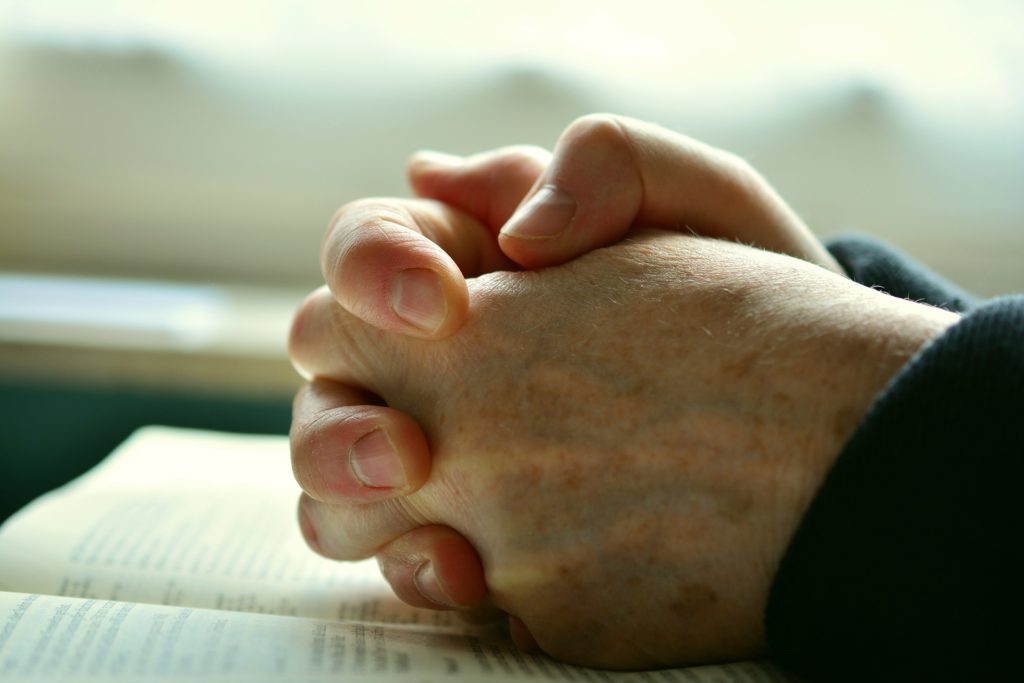
Nine Tips for Those Leading Public Prayer
Public prayer plays an important role in the life of the church. From the earliest days, the people of God have gathered for prayer:
- “And they devoted themselves to the apostles’ teaching and the fellowship, to the breaking of bread and the prayers” (Acts 2:42).
- “When he realized this, he went to the house of Mary, the mother of John whose other name was Mark, where many were gathered together and were praying” (Acts 12:12).
- “I desire then that in every place the men should pray, lifting holy hands without anger or quarreling” (1 Tim 2:8).
- Justin Martyr described early Christian worship in this way: “Then we all rise together and pray, and, as we before said, when our prayer is ended, bread and wine and water are brought, and the president in like manner offers prayers and thanksgivings, according to his ability, and the people assent, saying Amen; and there is a distribution to each, and a participation of that over which thanks have been given, and to those who are absent a portion is sent by the deacons.”
Prayer continues to play a very important role in the public worship of the church. Congregations have the autonomy to structure the worship assembly as they see fit, but in nearly every congregation where I have worshiped, at least two prayers are offered in every assembly (on the Lord’s Day that number would rise to include prayers said around the Lord’s Supper). Because we Christian men find ourselves needing to lead the church in prayer, I want to offer some suggestions for how best to pray in public.
Remember to Whom you pray
You are praying to no one except God himself. “the smoke of the incense, with the prayers of the saints, rose before God from the hand of the angel” (Rev 8:4). As you lead the congregation in prayer, you are going before the very throne of God himself. Being in the presence of God demands reverence and holiness and honor.
Remember for whom you are praying
You are not standing before the congregation to pray a solitary prayer. Instead, you are standing before the congregation to lead them in prayer. Take time to consider what needs to be said to unify the church in prayer.
Remember for whom you need to pray.
There are members and friends who are sick and shut-in, there are member who are struggling, there are world leaders who deal with difficult situations, there are preachers of the Gospel who need strength and support, and there are many others who merit prayer. If you are forgetful as I am, you may need to use a bulletin to pray for members by name.
Speak audibly
If you are really to lead the congregation in prayer, the church needs to be able to hear you and follow along with you. You need to speak slowly and speak into the microphone (if there is one) so that the congregation can hear you. “If you give thanks with your spirit, how can anyone in the position of an outsider say ‘Amen’ to your thanksgiving when he does not know what you are saying? For you may be giving thanks well enough, but the other person is not being built up” (1 Cor 14:16-17): The context of Paul’s words is the speaking in Spirit-inspired tongues (which is not possible today), but the Spirit-inspired principle still applies—if someone cannot hear you pray, he or she cannot say, “Amen.”
Structure your prayer after Jesus’ Model Prayer.
In the Sermon on the Mount, Jesus gave his disciples the Model Prayer (Matt 6:5-15). Jesus structured his prayer in a form that many now call the ACTS acronym, and I encourage you to use that acronym when you pray. You can read about how to use the ACTS acronym here.
Pray from your heart.
Don’t use rote prayers which have no meaning (Matt 6:7), but pray from your heart to the Lord.
Be constant in prayer.
If you are to lead the people of God in prayer, you need to “practice.” Scripture tells us to “pray without ceasing” (1 Thess 5:17). If we are not regular in prayer, our hearts will not be attuned to God and we will have difficulty praying to God because of a lack of experience.
Don’t preach.
Don’t take a lot of time praying expounding upon Scripture; the congregation prayerfully knows the Word of God, and we can be absolutely certain that God himself knows the Word.
Always remember the gravity of your role.
This point has been made repeatedly in the above suggestions, but we need to be reminded repeatedly not only of the privilege of talking to the Lord in prayer on behalf of God’s people but the gravity of doing so.
These are just a few suggestions for praying in public. What other suggestions would you make?





